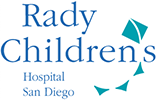When Can Kids Return to Sports After a Concussion?
What Is a Concussion?
A concussion is a brain injury that affects the way the brain works and can lead to symptoms such as headache, dizziness, and confusion. Symptoms usually go away within a few days to a month with rest and a gradual return to school and regular activities. Sometimes, the symptoms last longer.
Why Do Kids Have to Wait to Return to Sports?
Going back to sports before a concussion is healed can be very dangerous. When someone has a concussion, it takes less of a head injury to get another one. And the symptoms of the new concussion may be different, sometimes worse. Also, repeated concussions can lead to long-lasting, serious effects on the brain.
Kids who are healing from a concussion may feel fine. But their thinking, behavior, and/or balance may not be back to normal. Only a health care provider trained in caring for people with concussions can tell these things for sure.
When Can Kids and Teens Go Back to Sports After a Concussion?
After a concussion, most athletes want to know when they can start playing sports again. After a brief 24- to 48-hour rest period, kids and teens can start doing some light activity, such as riding an exercise bike or going for a brisk walk or slow jog as long as it doesn't make the concussion symptoms worse.
As the athlete tolerates these activities, they can add some light individual drills (such as kicking a soccer ball or playing catch). Before adding more intense activities or going back to organized sports, your child should see their health care provider.
How do health care providers know kids are ready to play again? They will consider them cleared for sports when:
- All symptoms of the concussion are gone.
- They're not taking any medicines for concussion symptoms.
- Their memory and concentration are back to normal and they are back to school full time.
- They don't have symptoms after activities such as jogging, sprinting, sit-ups, or push-ups.
Some schools do baseline concussion tests for athletes (computer programs to test attention, memory, and speed of thinking). If this is available, health care providers can compare baseline testing with results after the concussion. The results need to be back to baseline before kids are cleared to go back to all activities.
How Should Kids Return to Sports?
When your health care provider gives your child the OK to play sports again, have them ease back into things. And make sure they follow safety precautions for preventing concussions. At every stage, your child should stop playing right away if they get a head injury or any symptoms return. If your child’s team or school has an athletic trainer, they can help you put a schedule together for your child’s return to sports.
Kids will need frequent rest days as they add activities. As long as an activity doesn’t cause symptoms, they can slowly add more intense activities, including those that involve head movement. The last steps are full practice with possible contact and then actual competition.
What Else Should I Know?
Be sure to wait until your health care provider says it's safe for your child to return to sports. Talk to your child about how important this is. They may worry about letting down the team, feel pushed by a coach, or not want to miss out on the games. Remind your child that the best way to get back in the game as quickly and safely as possible is to follow your health care provider’s directions as they heal from the concussion.
With rest and a gradual return to activities, most kids with concussions recover within a week or two without lasting health problems.

© 1995- The Nemours Foundation. KidsHealth® is a registered trademark of The Nemours Foundation. All rights reserved.
Images sourced by The Nemours Foundation and Getty Images.
